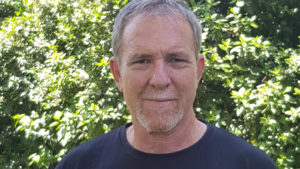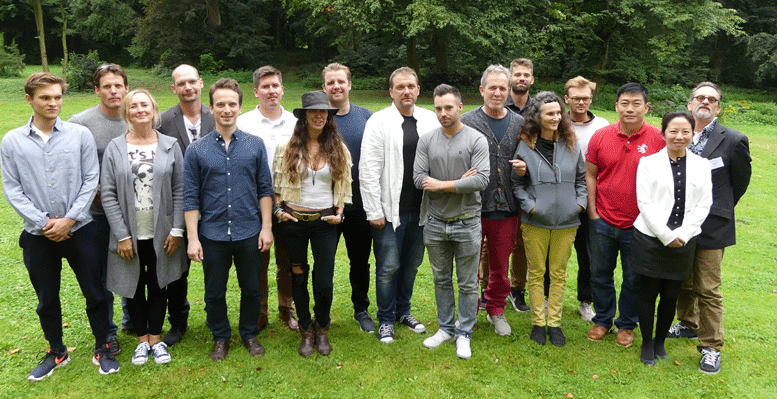Despite significant institutional challenges, the European CBD market will see strong growth for those companies that can navigate the murky waters of EU regulation while managing growth in a fast moving industry.
And while CBD represents huge global potential for the food, pharmaceutical and nutraceutical sectors, some players could end up victims of a shakeout as investors and consumers gravitate toward companies, products and brands that focus on quality and science.
Those were among key conclusions drawn from “The Future of Medical Hemp” Summit as delegates from Europe, Asia and North America met for two days of discussions at HempToday Center in Poland in late August.
Tough slogging but worth it
While varying legal frameworks country-by-country make Europe sometimes tough to navigate, the situation is manageable – and well worth it, said Jacek Kramarz, Chief of Sales at HemPoland, maker of the fast-moving CBD brand CannabiGold. The Elbląg, Poland-based firm was recently sold in what is the biggest acquisition of its kind on the continent to date.
“What’s more difficult is planning the business,” said Kramarz, noting that longer-term forecasting can be a meaningless exercise in a sector that’s growing so fast. Compounding challenges in Europe are things as pedestrian as the packaging and labeling of products – which must be carefully executed to meet local language and marketing needs as well as regulatory considerations, Kramarz noted.
Shifting consumer profile

HemPoland, which sells CannabiGold in 15 European markets, has meanwhile seen demand by health-conscious consumers eclipse that among previous customers, who were buying CBD for specific maladies.
“Initially the customers were mainly people looking for relief for different medical conditions. Most could not find cures for their symptoms in standard medicine,” Kramarz said. “What we see now is that CBD becomes more of a lifestyle thing because the benefits of using cannabinoids reach far beyond curing specific ailments,” he added.
Beware the squeeze

Beyond Europe, in the global CBD gold rush, some players may get squeezed out as the industry normalizes and quality standards go higher, delegates also concurred.
“With more and more producers coming into the fold, prices per kilo are going to go down. So the quality must go up to advance the process of pharmatization, said Boaz Wachtel, CEO at nutraceuticals maker Creso Pharma. “This is also true in food supplements,” Wachtel added.
Enough room for growers?
“With many companies coming into play, those who are not up to requirements and specifications will end up missing out and losing the business,” Wachtel said. “So we’re not sure there will be enough room for all growers to make money.
“There’s a process of consolidation happening. So the business model may not last for very long,” according to Wachtel. “But it’s a natural consequence of success when you have a compound like CBD, which is safe and effective.”
Basic data still missing

Quality issues are central to the mission of ICCI – the International Cannabis & Cannabinoids Institute, represented at the Summit by CEO Pavel Kubu.
“We have to recognize all medical cannabis products – many on the market already – are still missing basic data needed in a clinical practice,” creating a barrier to development all around the world. ICCI is working to fill that gap by creating the services and tools necessary to develop medical cannabis programs based on rigorous quality and health standards.
Among other conclusions from “The Future of Medical Hemp” Summit, the group found:
- Disharmony is barrier: Regulatory frameworks around the world hold up industry development. Stakeholders are profiting nicely in countries and regions that have well-defined regulations. In other regions, tremendous amounts of money are being wasted on law enforcement under antiquated regulatory regimes. “At the end of day, this discriminates against many entrepreneurs who could be active in this booming business,” said ICCI’s Kubu.
- THC rules hurt Europe: With most of the world operating at a 0.3% allowable THC limit for hemp, and some bold nations already at a full 1.0% limit, Europe will remain at a disadvantage on the world market under its current 0.2% THC benchmark. While European stakeholders now lobby to raise the limit to 0.3%, work should begin immediately to lift that limit on par with leading markets Switzerland, Australia and Uruguay, who have adopted the 1.0% standard.
- China will dominate: While China remains a bit of an enigma, it has great – and massive – hemp producers, R&D is expansive, and quality across all production is rising fast. Add to this its edge in genetics, and China can be expected to dominate the hemp industry well into the future.
- The “democratization of knowledge” that that makes consumers aware of, and gives them access to information about CBD and its benefits will be a key driver in advanced markets.
- Canada can quickly emerge as a major CBD producer after recent changes that allow farmers to sell hemp flowers and leaves, essentially opening the market for CBD production in a nation that also has legalized marijuana for medical and recreational purposes.
- Latin America‘s generally favorable regulatory environments make the region certain to attract more and more investor attention.
- Southeast Asia lags behind other global regions in terms of regulatory change due to lingering conservative approaches to cannabis.
- U.S. CBD makers would be well advised to focus on innovation and specialization as the long-term keys to success.
- Communications outreach is needed ongoing to inform and educate the entire value chain – from investor to consumer – to advance normalization of CBD products in the global marketplace.

